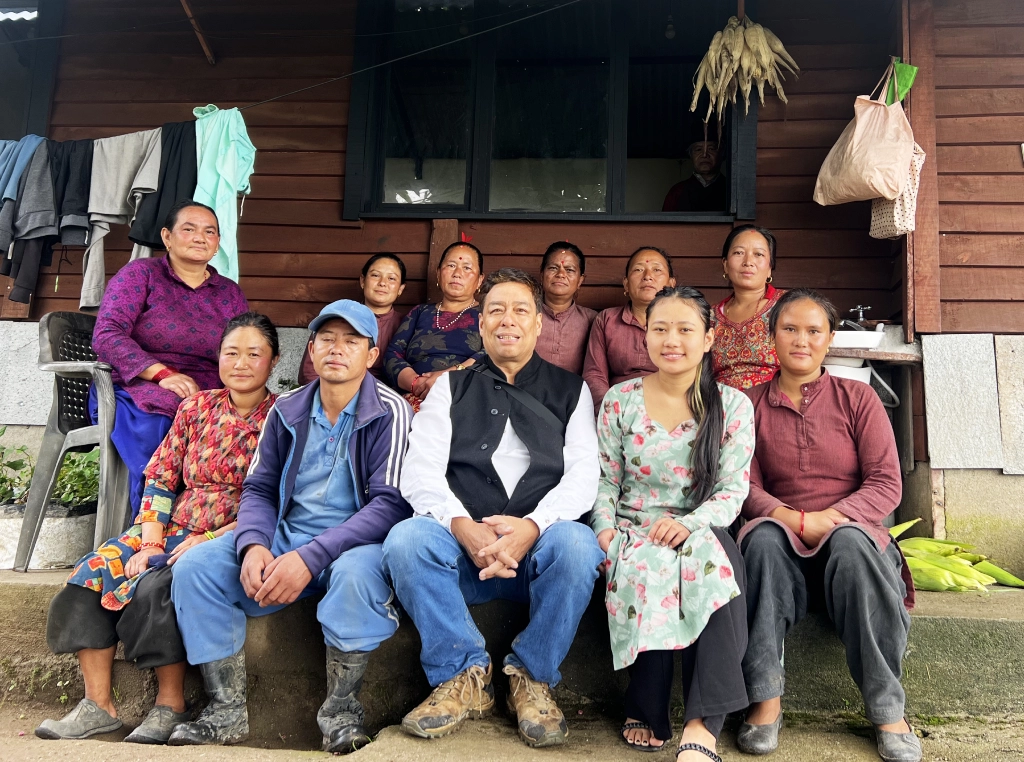Hotel Story
Founded by visionary Arun Shrestha, this pioneering venture emerged from a legacy of hospitality excellence. Arun’s extensive knowledge was nurtured working alongside his father, Vishnu Shrestha, who pioneered Nepal’s resort concept with Dhulikhel Mountain Resort. Under Arun’s leadership, the resort has evolved into a holistic venture encompassing social, cultural, and environmental initiatives while spearheading various green initiatives across the community.
The resort’s philosophy centers on sustainable tourism through eco and organic agro-tourism farming. Operating under a Community-Based Ecotourism model, 16 local farmers hold 18% of total shares, ensuring economic benefits remain within the community. The long-term vision focuses on creating livelihood opportunities while safeguarding the environment through minimal ecological impact and tangible community benefits.
Situated at 2,000 meters in Shivapuri Nagarjun National Park’s buffer zone, the resort combines traditional Nepalese mountain architecture with modern comforts. Guests enjoy breathtaking Himalayan views while experiencing organic farm-to-table dining. The property serves as a gateway for Langtang treks and local hiking routes to Kakani, Nagarkot, and Dhulikhel. Activities include exploring serene Dhaap wetlands, visiting local trout farms and cheese factories, and cultural walks through diverse ethnic settlements, all while witnessing spectacular Himalayan sunrises and sunsets.














